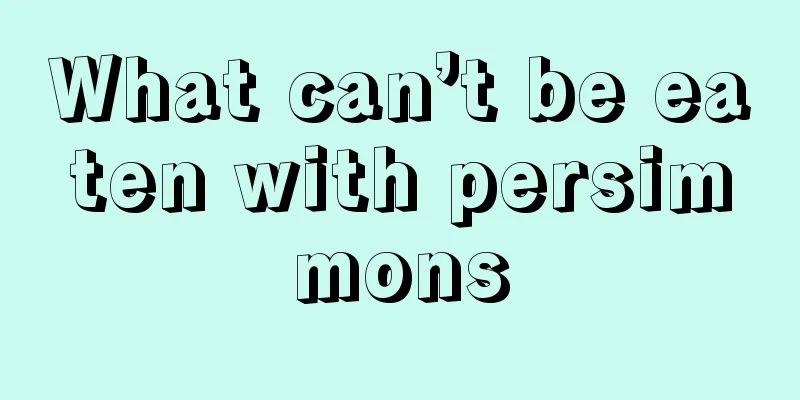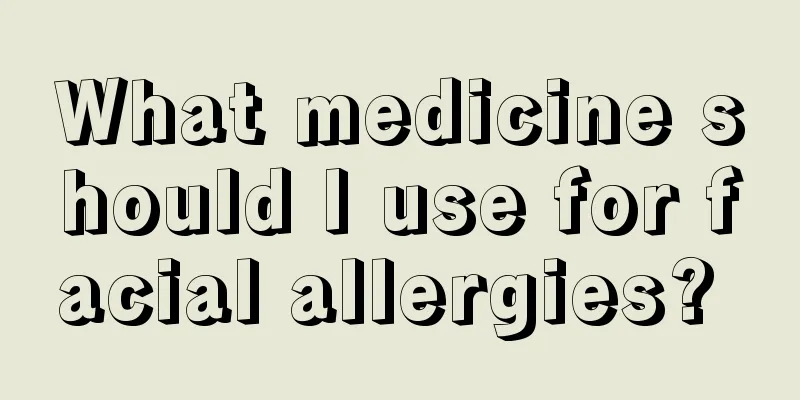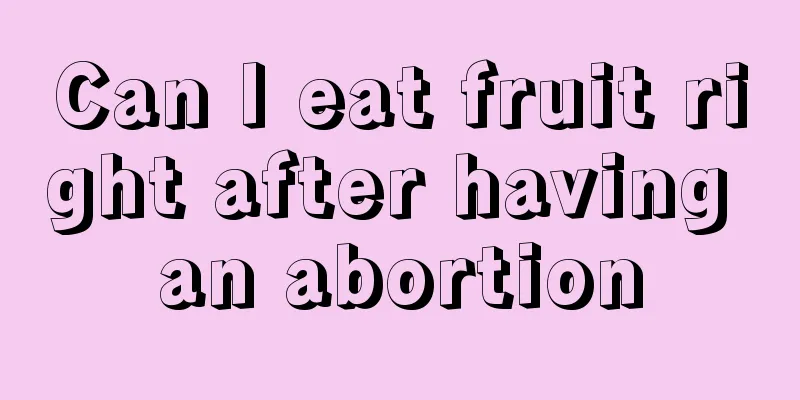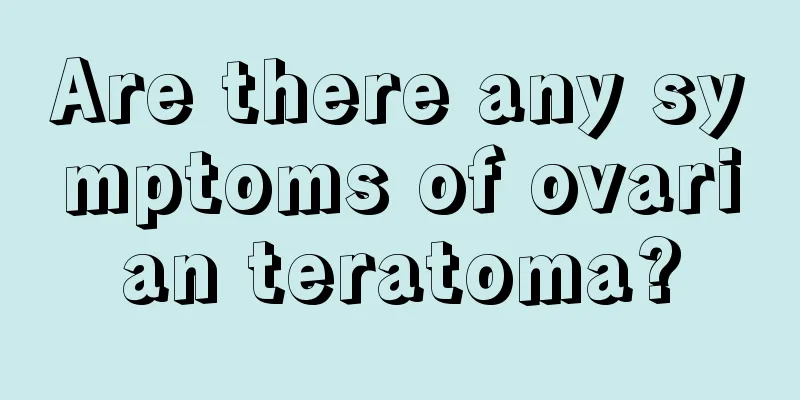What can’t be eaten with persimmons

|
Persimmon is a fruit that many people like to eat. Persimmon is soft and easy to digest. Persimmon not only moisturizes the large intestine, but also can relieve cough. People with high blood pressure can eat some persimmons, but be careful not to eat the skin of persimmons when eating persimmons. Persimmons are also incompatible with some foods, so you have to be careful when eating persimmons. Many people still don’t know what foods cannot be eaten with persimmons. What can’t be eaten with persimmons? Let’s take a look at it next. 1. Things to note when eating persimmons 1. Do not eat on an empty stomach Because persimmons contain more tannins and pectin, they will form lumps of varying sizes under the action of gastric acid when the stomach is empty. If these lumps cannot pass through the pylorus to reach the small intestine, they will be retained in the stomach and form gastric persimmon stones. If gastric persimmon stones cannot be excreted naturally, it will cause gastrointestinal obstruction, resulting in symptoms such as severe upper abdominal pain, vomiting, and even vomiting blood. 2. Don’t eat persimmon peel Most of the tannins in persimmons are concentrated in the skin. When the persimmons are no longer astringent, it is impossible to remove all the tannins. If you eat them with the skin, it is more likely to form gastric persimmon stones. 3. Reasonable collocation In traditional Chinese medicine, crabs and persimmons are both cold foods, so they cannot be eaten together. From the perspective of modern medicine, crabs, fish, and shrimps that are high in protein can easily coagulate into lumps, namely gastric persimmon stones, under the action of tannic acid. We should also note that it is best not to eat persimmons after drinking alcohol, especially after drinking white wine. It will seriously affect the digestive function of the stomach and intestines and bring a huge burden to the stomach and intestines. If this happens frequently, it will cause intestinal obstruction and require treatment in the hospital. 4. Tailor it to the individual Because persimmons contain 10.8% sugars, most of which are simple disaccharides and monosaccharides, they are easily absorbed after eating and cause blood sugar to rise. It is even more harmful for diabetics, especially those with poor blood sugar control. In addition, people with diarrhea, loose stools, weak and sickly body, postpartum women, or people with cold should avoid eating it; people with low gastric motility function such as chronic gastritis, delayed emptying, indigestion, and those who have undergone subtotal gastrectomy should not eat it. 5. Know when to stop The tannic acid in persimmons can form compounds with calcium, zinc, magnesium, iron and other minerals in food that cannot be absorbed by the human body, making these nutrients unusable. Therefore, eating too many persimmons can easily lead to a deficiency of these minerals. Because persimmons contain more sugar, people will feel fuller after eating persimmons than eating the same amount of apples or raw pears, which will affect appetite and reduce the intake of regular meals. It is generally believed that if you are not on an empty stomach, it is best not to eat more than 200 grams of persimmons each time. 2. What should not be eaten with persimmons? 1. Do not eat persimmons with sweet potatoes Sweet potatoes contain a lot of starch, and eating them will produce a lot of gastric acid in the stomach. If you eat some persimmons at the same time, the persimmons will precipitate under the action of gastric acid. Similarly, sweet potatoes will also precipitate under the action of gastric acid. These precipitates will accumulate together to form small pieces. These small pieces are difficult to blend with water, and even more difficult to digest. They are generally not easy to be excreted. If they accumulate in the body for a long time, it will easily cause gastric persimmon stones, and severe patients may even be life-threatening. 2. Do not eat persimmons and acidic vegetables together Eating both together may cause gastric stones. After eating persimmons, please do not drink too much acidic vegetable soup or too much water. After eating sauerkraut, a large amount of hydrochloric acid will be produced in the human stomach, which will react with the gastric acid produced by persimmons in the stomach to produce precipitation. The precipitates accumulate together to form water-insoluble lumps, thus causing gastric stones. 3. Notes Persimmon peel cannot be eaten. Some people feel that eating persimmons while chewing the persimmon peel tastes better than eating the persimmons alone. In fact, this way of eating is unscientific. Because most of the tannins in persimmons are concentrated in the skin, it is impossible to remove all the tannins when the persimmons are de-astringent. If the persimmons are eaten with the skin, it is more likely to form gastric persimmon stones, especially when the de-astringency process is not perfect, the skin contains more tannins. |
<<: Can I eat apples after eating persimmons?
>>: Does it affect a 2-month-old baby if an adult's arm is pressed on his chest?
Recommend
What to do if your nose is dry
A dry nose can cause some other types of diseases...
What Chinese medicine is the most effective for toothache
Nowadays, many people are facing the situation of...
Why does my stomach hurt after urinating?
It is very common to have abdominal pain after ur...
Normal color of tongue coating
The tongue coating is caused by changes in the co...
What should I eat before nasopharyngeal carcinoma surgery?
Nasopharyngeal cancer patients can eat some high-...
Symptoms and clinical manifestations of esophageal varicose veins should be known
Esophageal varices is a very serious disease. Pat...
What are the causes of endometrial cancer
Many patients do not know much about endometrial ...
How is pancreatic cancer transmitted
With the high incidence of diseases in recent yea...
What can you eat to strengthen your bones?
Bone health is very important to the human body. ...
What causes small cell lung cancer
Small cell lung cancer is a common malignant tumo...
What are the types of fresh ginseng that can be preserved and dried?
Health care has always been our goal. Therefore, ...
Precautions for ovarian tumor treatment
After ovarian tumor surgery, you need to take goo...
There is a white pustule on the gums
A white pustule on the gums may be caused by apic...
How to tie your child's hair to look good
If a little girl has long hair, her parents will ...
Eye drops to restore vision_eye drops to restore vision_myopia eye drops to restore vision
In life, many young people often read books, and ...









